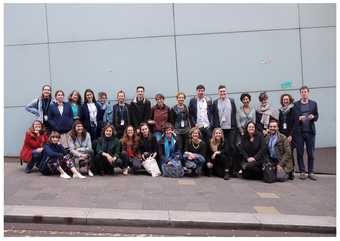The research and training programme New Approaches in the Conservation of Contemporary Art (NACCA) is educating a new generation of professional curators, conservators and academic researchers who are properly equipped to face the challenges of the preservation of modern and contemporary art.
NACCA will address questions concerning the identity, values and authenticity of modern and contemporary artworks and the consequences for their conservation, rethinking historically grown professional distinctions as those between the curator and the conservator, re-organizing the institutional ecosystem, and establishing frameworks for international, interdisciplinary and intersectoral research and training collaboration.
The programme is designed by experts working in museums, heritage organisations and universities that have a profound experience in the field of contemporary art conservation and conservation research. It consists of a research and a training part, which are closely connected and mutually inform each other. It will focus on the development of a reflective professional attitude, which is a pre-requisite in the increasingly complex and collaborative field of contemporary art conservation.

NACCA Summer School 2, Glasgow University, 26-30 June 2017
NACCA is coordinated by the Faculty of Arts and Social Sciences at Maastricht University. In total, 15 PhD projects are part of the programme, each investigating different, as yet under-explored aspects of contemporary art conservation.
In collaboration with the Faculty of Law of Maastricht University, PhD candidate Zoe Miller is conducting a three-year research period at Tate under the supervision of Professor Hildegard Schneider and Dr Anke Moerland, Maastricht University, and Professor Pip Laurenson, Tate. Zoe’s research, which falls under the title ‘Ownership, Information, Control, and Access: A Study in Practice and Ethics’, is an examination of the dynamics of contemporary art conservation research that considers this research within legal, policy, ethical, and professional framework.
